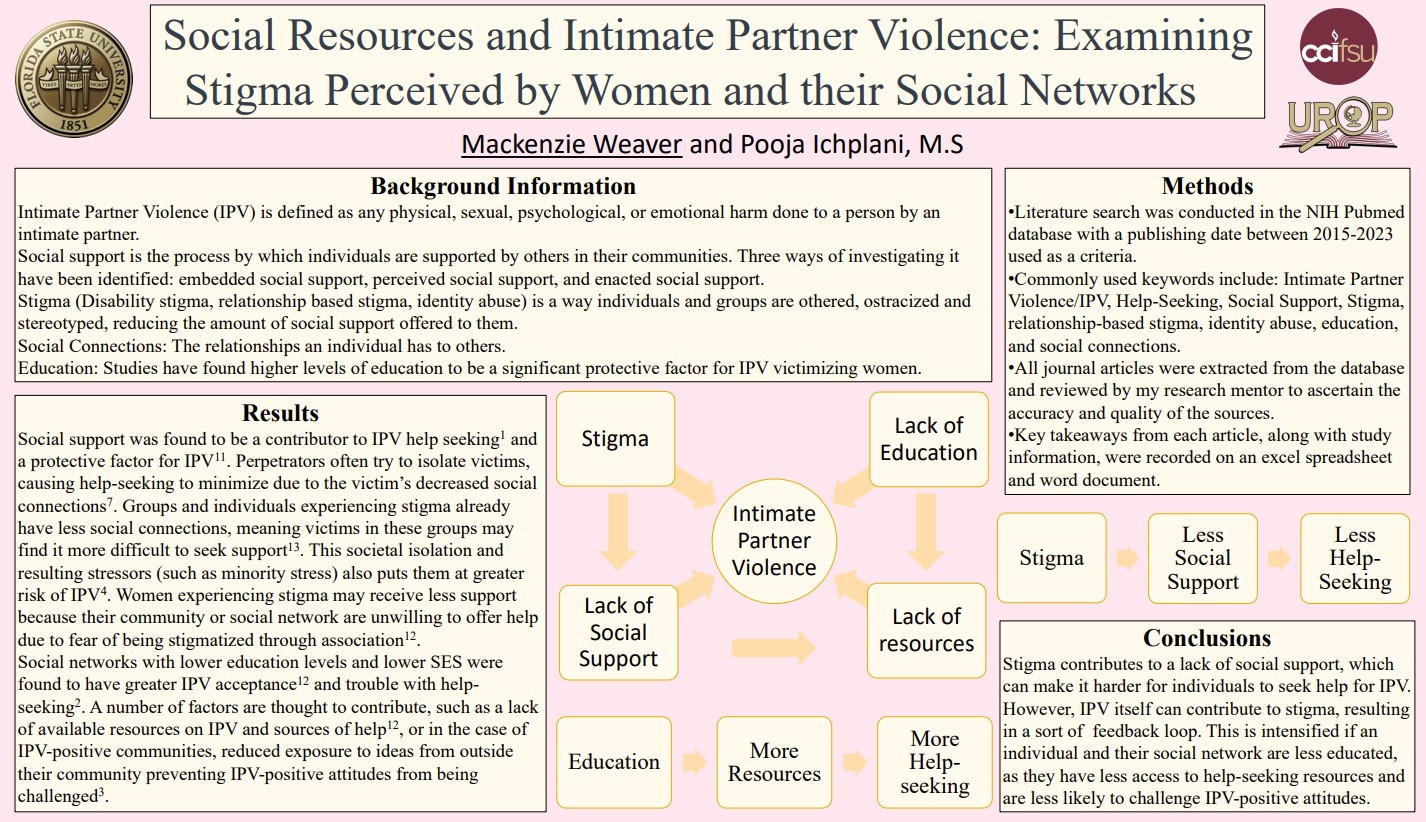Research Symposium
23rd annual Undergraduate Research Symposium, April 6, 2023
Mackenzie Weaver Poster Session 1: 11:00 am - 12:00 pm/ Poster #214
BIO
My name is Mackenzie Weaver, and I am a current Freshman at Florida State University majoring in Community Patient Care on the Pre-Medical track. I am from Suwanee, Georgia, and plan on going into epidemiology. My research interests mostly center around disease and its risk factors, along with the psychological effects of illness.
Social Resources and Intimate Partner Violence: Examining stigma perceived by women and their social networks
Authors: Mackenzie Weaver, Pooja IchplaniStudent Major: Community Patient Care
Mentor: Pooja Ichplani
Mentor's Department: Communications Mentor's College: Colloge of Communication and Information Co-Presenters:
Abstract
Intimate partner violence (IPV) involves any physical, psychological, sexual, or emotional violence committed by an intimate partner. It is widely recognized as a public health problem affecting many individuals, primarily women, globally. This review seeks to illustrate how stigma reducing social connections lowers help seeking behaviors in regard to IPV. One of the greatest protectors against IPV are social connections, as they make victims less isolated, and offer resources to them when in need, reducing their dependence on an abusive partner. Another factor influencing IPV is the education level of a victim and their social networks, as higher education translates to greater availability of resources for IPV prevention or reduction, while less educated individuals and their social networks might not have access to those resources, thereby increasing their risk of IPV. However, many individuals experiencing IPV have limited social connections making them more susceptible to abuse, reducing its protective effect. This isolation is especially pronounced for those who experience stigma. Stigma (e.g., identity-based discrimination, relationship-based stigma) is a way by which groups in society are “othered” and stereotyped, making it difficult for individuals in these groups to defy the normative conditioning around abuse in order to help a victim, as the “helper’s” social network may also ostracize them for their supportive actions. Given the nature of anticipated stigma around abuse and help-seeking, victims are less likely to approach their social networks, thus reducing the perception, availability, as well as instrumentality of post-IPV social support.
Keywords: IPV, Stigma, Social Support, Help Seeking


